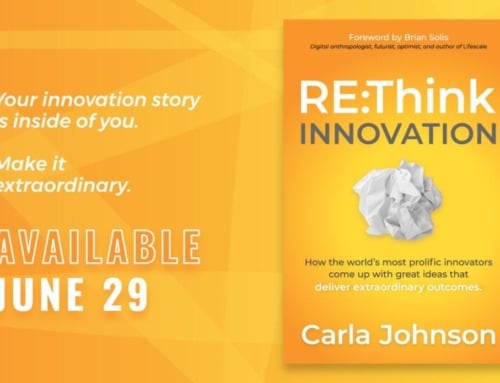I recently recorded a podcast about the value and process of smart goal planning for your agency. I know you’re crazy busy with the day to day. I get that you never have more than 10 minutes uninterrupted. Which is why you absolutely MUST carve out time to put together a plan for where you want your agency to go and how you’re going to get there.
But before you do that – I want to encourage you to also think a about your own life goals and why you’re working so hard.
As part of the podcast, I walk you through two documents – The Life Plan and the One Page Business Plan.
In the Life Plan, you’ll get very clear about what you want from your life, the legacies you want to leave and some tangible steps for creating a life of purpose and contentment.
With the One Page Business Plan, you’ll identify the #1 goal you have for your agency in six key areas and prioritize those goals so you know which one to tackle first.
I promise if you use these two documents, you’ll be stunned at what you will accomplish over the next twelve months. Just like you tell your clients – the lack of smart goal planning is a plan, just not a very good one. Take this opportunity to get very clear on where you want to take your agency and why.
Drew McLellan is the Top Dog at Agency Management Institute. He has also owned and operated his own agency over the last 20-years. And all through the year, he straddles the fence of working in his agency and working with 250+ small- to mid-size agencies in a variety of ways. He works with agency owners in peer network groups, teaches workshops for owners and their leadership teams, teaches AE bootcamps, and does a lot of consulting. He has also written two books and been featured in The New York Times, Entrepreneur Magazine, and Fortune Small Business. The Wall Street Journal called his blog “One of 10 blogs every entrepreneur should read.”
To listen – you can visit the Build A Better Agency site (https://agencymanagementinstitute.com/drew-mclellan-solocast-episode-2/) and grab either the iTunes or Stitcher files or just listen to it from the web.
If you’d rather just read the conversation, the transcript is below.
If you’re going to take the risk of running an agency, shouldn’t you get the benefits too? Welcome to Build a Better Agency, where we show you how to build an agency that can scale and grow with better clients, invested employees, and best of all, more money to the bottom line. Bringing his 25-plus years of expertise as both an agency owner and agency consultant to you, please welcome your host, Drew McLellan.
Drew: Welcome back to another episode of Build a Better Agency. This is one of my solocasts so again, this is where I don’t bring another guest into the mix. It’s just you and me talking about something that I think needs to be on your radar screen. Today, we’re going to talk about planning. So I’m recording this podcast, regardless of when you’re listening to them, I’m recording it in December. So I’m looking out ahead at the year coming.
So hopefully, you’re listening to this in real-time. But even if you’re not, regardless of when you’re listening to this, you can initiate planning at any point in your agency. This is one of the areas where agency owners often fall short. You’re so busy running the business and especially at the end of the year. You’re so busy wrapping things up and trying to tie all the loose ends together so that you have a great and prosperous year, that one of the things that often suffers is your own agency planning for the next year.
I think it’s a dangerous thing to assume that everything is going to go according to plan. Because if you’ve been in the business for any length of time at all, you know if there is one constant in agency life, it’s that it is inconsistent at best. I think one of the ways to try and balance out that inconsistency and to continue to build your agency to be bigger, better, stronger…remember, when I say bigger, I don’t necessarily mean more bodies. I’m talking about a bigger bottom line but better and stronger … is to do some planning for the year ahead and to then follow that plan throughout the year.
We advocate at AMI a very simple process for smart goal planning. I think one of the reasons why business owners in general…by the way, a lot of my words today are going to sound very familiar to you because they’re the same speech you give your clients all the time when you’re trying to get them to do planning for the upcoming year. But somehow, we don’t look in the mirror and give the same speech to ourselves. So that’s my job today is to give the speech that you give to your clients, to you.
I believe one of the reasons why agencies don’t plan better for the future is because they seem to make planning a bigger deal than it needs to be. I think they kind of try and create the Mona Lisa of business plans. I’m a simple creature and I try and keep things really simple. So at AMI, we have created a one-page business plan. And do not tell me that you don’t have the time or the resources to fill out a single page of paper. But I actually have two plans that I want you to do.
The first one that we’re going to talk about actually puts you front and center. So you own an agency and you’ve taken all the risks. As you know, because I have been preaching it, I believe if you’re willing to take the risk, you also should be able to reap the rewards. So the first part of what I believe should be your annual plan is a plan that you do yourself around your life. And then the second piece we’re going to talk about is the plan for your agency. So in the show notes, you’re going to find a link to two PDFs and the first one is called “The Life Plan.”
Let me just walk you through it and tell you what it includes. You can disregard any or all of this. I try very hard not to get too new agey or kind of woo-woo on you but I do want you to be thinking that your agency is supposed to serve you and your family and your goals and that’s why you’ve taken all this risk. So let’s start there and figure out what you want to get out of this coming year and then how the agency can support that.
So in the document called “Life Plan,” you’re going to see some things. The first one is asking you if you have sort of a life sort of vision or motto or creed. In the example I’ve given you…so there’s a document that’s blank for you to fill out, but I also have shared with you my example. I wanted you to see what it looks like so you’re going to see what my life motto and creed are. But if you have one, great, put it in there. If you don’t have one or don’t want to have one, you don’t need to do that.
So the next question is five legacies that you want to leave. I believe that we are on this planet to leave our mark, whatever that may be. I hope that you are living a life of purpose, and that you too want to leave your mark on the world and the people that matter to you. So I’m asking you to identify five legacies that you want to leave. These are big picture things.
So, for example, one of mine is to be a giving and helpful teacher/coach in all that I do. So these are big, broad things, things that, if you will…probably some of you have done the obituary exercise where you had to write your own obit and what would people say about you. That’s what I’m looking for here are five legacies, things that people would say about you that sort of mark your lifetime and what you meant to this planet and to the people that were here. So five legacies you want to leave.
Then the next thing, what are three things you’re going to do in the coming year to contribute to those legacies? So I believe that our legacies are things that we get better and better at and we contribute to in little bits and pieces all through our life. But I also don’t think that happens by accident. So I think being really purposeful about identifying what it is you’d like to do in the coming year to make those legacies more robust and more true is a great thing. So there’s that.
Then your 2016 mantra and so what I mean by that is I like to start every year with identifying three words that are going to identify my priorities for the year. So whatever those might be. Whatever the three most important things are, and again you’ll see what mine are, but any three words that sort of sum up what you’re trying to accomplish in 2016. Or if you’re listening to this later, 2017 or whenever that may be.
The next one is asking you for three SMART, so Specific, Measurable, Attainable, Realistic, and Time-sensitive goals for my professional life. So identify three goals that you can actually measure and you will be able to tell yes or no if you hit it or not for your professional life, and then as you might imagine, three SMART goals for your personal life. Then the last thing on the Life Plan is, “Five people I want to spend more time with to help me achieve these goals.”
I am a firm believer in that the people you surround yourself with have great influence on the life that you lead. So, as you look at these goals and what you want to accomplish, not only this year but in terms of the legacy throughout your life, who are people that you would like to have in your life on a more regular basis. That might be somebody from a mastermind group, it might be a peer, it might be a family member. Who is really going to help you and encourage you to achieve those goals?
So that’s the Life Plan part. Again, I’d go somewhere quiet and I would probably read through the plan and jot down some notes, and then kind of let it soak for a little while, a couple days or maybe even a week, and then come back and fill it out. I think you’ll be surprised at how much you know the answers to these questions. Even if you’ve never thought about them before, at some level, you do have the answers to these questions in your head and in your heart.
I’m just trying to get you to write them down. Why? Because we all know, and again this is something you preach to your clients, when we write it down and we commit to it in that way, something magical happens and we actually get much further in accomplishing those goals. So I want you to write it down. I want you to commit to it.
Even if you don’t share this with anybody else, even if this is just between you and yourself, I’d love for you to write it down so that it is something you can look back on on a regular basis. If you have an accountability buddy or a mastermind group or something like that, this might be something you share with them and ask them to hold you accountable to it. So anyway, finish that one up first because I think that will also help you when we get to the agency one-page business plan.
When you look at the one-page business plan piece of smart goal planning, which you can either download here or in the show notes, you’re going to see that it wants you first to identify your agency’s positioning line. So again, remind yourself how you differentiate yourself from other agencies. By the way, being a full-service, fully integrated agency is not differentiation. You all say that. So figure out how you position yourself to make you look different and unique and be the right choice for certain clients.
Then it asks you in six areas to identify the number one goal that you would like to accomplish in the coming year. So those areas are a leadership management goal, a staffing goal, an internal systems goal, a financial goal, a new business goal, and an agency marketing goal. In each of those, I want you to identify the number one thing that if you did one thing in each of those areas, what would have the most impact on your business? Again, those should be SMART goals that’s specific, measurable, achievable, realistic, and time-bound.
Identify a goal, so for example, it may be the leadership management goal is that you want to elevate one of your leadership teams’ ability to manage people, that that’s one of your goals, whatever it may be. Or that you want to have regular leadership team meetings or you want to create a leadership team, whatever it may be. And then under each of the goals there are two other questions. The first one is, “What is the biggest obstacle to getting this done?” And then the second one is, “What are my first two action steps?”
First, I want you to identify six goals, so one goal in each of those categories, and then I would like you to identify the largest obstacle. What’s in the way of you getting that goal done? Underneath that, what are the first things you need to do to get started on that goal, whatever that might be? After you’ve done all that, you’ll see off to the left on the sheet, there’s a little line in front of the names of each category of goals.
What I want you to do there is I want you to rank those goals in order of importance to your business. So let’s say that you are on an accounting software system that served your purposes great when you were 12 people in the agency. But now that you’re 32 people in your agency, QuickBooks or whatever you’re using, Peachtree, just doesn’t cut it anymore. So your internal systems goal is to implement a new software for accounting and to get everybody on board with timesheets and purchase orders and all of that sort of thing, some of the things that you haven’t been doing.
So let’s say that’s the most important goal for you. You believe that will have the most impact on your business. Then you would put a number one in that little box or on that little line next to that. So I just want you to rank the goals because the truth is, here’s what happens. Much like all New Year’s resolutions, we get all heady about what we want to accomplish in the year ahead, and we get so ambitious that we create a plan that there’s no way we can do.
If you try and accomplish all six of these goals at once, you’re going to be paralyzed with being sort of overwhelmed and not being able to get to it all. In the end, you just sort of end up doing nothing and your smart goal planning goes to waste. So what I would like you to do is I would like you to identify these goals in terms of priority, and then tackle them one at a time. So if your new business goal is getting a new business program and process in place, or maybe your new business goal is about revitalizing your monthly e-newsletter or whatever it may be, if that’s the number one thing, then tackle that. Focus on that until it’s done, and then move on to the next goal.
My suspicion is you can probably get most of these goals done in the first half of the year. Then if you’re feeling ambitious, go through the exercise again for the second half of the year. But even if it takes you all year to move these rocks out of the way, to use a “Traction” term if you’ve read the book “Traction”, even if it takes you all year to accomplish these goals, imagine how different your business is going to be a year from now if you actually follow suit. So what I would recommend is that you fill out this one-page business plan.
Then if you have a leadership team or kind of department heads, I would give each of them a blank one and I would ask them to fill it out on their own. And then bring everybody together and have a discussion about what everyone identified as the critical goals in each of these categories. And then as a group agree upon which one, not two, not three, which one goal in each of these buckets is going to be your first priority and then together, go ahead and rank them. So by doing that, you now have a committed team who understands exactly where you’re going and what you’re going to work on first.
This is not part of the form because it would be more than one page, then it wouldn’t be a one-page business plan. Then I want you to create a little action plan of how you’re going to get the first goal done. And again, do not make this complicated. Do not make this the Mona Lisa. Just get it down and get it so that you and the whole team knows what needs to be done and who’s going to do what, when, and who’s accountable to who. How are you going to report back? How are you going to know that you’re moving forward on this goal? How will you know when it’s done?
Then you do the same thing for the second smart goal planning exercise and so on and so on throughout the year. I promise you, if you do these two things, these two simple pieces of paper, I think that whenever you’re listening to this, 12 months from now, you’re going to look back and say, “Holy buckets, I can’t believe I got all that done. I can’t believe I have moved the needle that much in such a short period of time.” That will not happen if you don’t write this stuff down. If you don’t commit to it, if you don’t share it with others and ask them to hold you accountable, it just doesn’t get done.
So please, please, please take the time to do this planning. If you have a leadership team, involve them in the agency business plan, half of the planning, and have an awesome year because you have done that. Invest in yourself right now so that 12 months from now, you can look back and say, “I remember when we were there, and I really like being here, right where we are now.” I promise you that’ll happen if you carve out the time to do this.
If you have any questions about either form or you want to talk about them, you know how to reach me. I’m [email protected]. I’m always happy to have conversations about these sort of things. If you are enjoying the podcast, I’m hoping that you will subscribe so you don’t miss an episode. If you are so inclined, when you go and you leave a review and a rating on either iTunes or Stitcher, that helps other folks find the podcast, and I would greatly appreciate that as well.
So please go download both of those smart goal planning forms. Dig in and dig deep inside yourself to find the answers that really are going to serve you and your family, and are going to justify all of the angst and the risk and the nights that you don’t sleep because you own an agency. There’s got to be an upside to all of that and I really believe there is. I think it’s a great life that we build for each other and part of that is about being purposeful. So go ahead and fill out that life plan and that business plan, and then go make the next 12 months absolutely awesome because you are on track and you have a plan. I’ll talk to you soon and I will see you next week on the next Build a Better Agency podcast.
That’s all for this episode of Build a Better Agency. Be sure to visit agencymanagementinstitute.com to learn more about our workshops and other ways we serve small to mid-sized agencies. While you’re there, sign up for our e-newsletter, grab our free e-book, and check out the blog. Growing a bigger, better agency that makes more money, attracts bigger clients, and doesn’t consume your life is possible here on Build a Better Agency.





